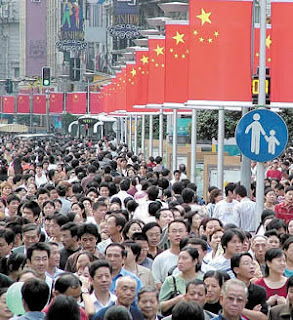We met up for teamwork on Thursday night, which unfortunately was the only time we could meet up but we thought it was important. Personally I feel like what we accomplished in that meeting could have been accomplished without meeting up, but at least the meeting proved our commitment.
During the meeting, we defined our question and organised team roles further. We also set a timetable for ourselves, so that by next week we would have found all our info and the week after we should have done the filming part of our presentation. We all recognised that having a clear definition and a definite timetable would make things a lot easier, which showed that we had similar priorities and ways of learning.
Communication was a balance between work and education commitments which was fun.
Ratings:
Productivity: 8
Communication: 8 (although everyone was tired and the yawning was a bit infectious)
Saturday, April 25, 2009
Wednesday, April 8, 2009
Team Survey
Strengths and Weaknesses
Una, Jemma and I come from similar backgrounds (all studying Spanish, and Una and Jemma are studying education), which has its pros and cons.
Pros include the fact that we think along the same lines and it’s easier to make decisions. Cons include the fact that we need to work harder to diversify. But I think it’s something that we can easily overcome by focusing on interests apart from our university majors.
As a group, our strengths include co-operation, participation and communication. Our weaknesses include time management – we’re all quite busy and we find it very difficult to meet up. But because we communicate well (thanks to the internet) and co-operate with each other, at this stage quick after-class meetings are all we need. Thankfully with the holidays coming up we’ll be able to meet up more often.
Team Goals
We’re aiming for an informative yet entertaining and interesting presentation, and are trying to achieve at least a high credit or distinction. This is achievable because we keep in contact two or three times a week and we all participate equally.
We’ll need to improve our time management skills if we want a higher mark though but since we have similar goals in mind, we are able to work efficiently. While we do get distracted, it’s not often and generally we’re quite focused. When making decisions, we brainstorm and play off each other’s ideas. This way, if work or ideas are not up to standards, as a team we can also build on it.

Image: ~Ellie-the-dreamer via Deviant Art
Una, Jemma and I come from similar backgrounds (all studying Spanish, and Una and Jemma are studying education), which has its pros and cons.
Pros include the fact that we think along the same lines and it’s easier to make decisions. Cons include the fact that we need to work harder to diversify. But I think it’s something that we can easily overcome by focusing on interests apart from our university majors.
As a group, our strengths include co-operation, participation and communication. Our weaknesses include time management – we’re all quite busy and we find it very difficult to meet up. But because we communicate well (thanks to the internet) and co-operate with each other, at this stage quick after-class meetings are all we need. Thankfully with the holidays coming up we’ll be able to meet up more often.
Team Goals
We’re aiming for an informative yet entertaining and interesting presentation, and are trying to achieve at least a high credit or distinction. This is achievable because we keep in contact two or three times a week and we all participate equally.
We’ll need to improve our time management skills if we want a higher mark though but since we have similar goals in mind, we are able to work efficiently. While we do get distracted, it’s not often and generally we’re quite focused. When making decisions, we brainstorm and play off each other’s ideas. This way, if work or ideas are not up to standards, as a team we can also build on it.

Image: ~Ellie-the-dreamer via Deviant Art
Monday, April 6, 2009
Week 6: China and the WTO
An underlying thread running in this week's topic was the difference between academic theory, bureaucratic policy and the reality. One of the questions we discussed in our tutorial on Thursday was whether China's entry into the WTO has been of benefit to everyday citizens, and one aspect we looked at was that while there is no doubt that China's entry into the WTO has changed decision-making in China (Guo, 2008, p. 343), are the general public aware of this? How many of them are aware that there is more openness, and if they are aware, are there actually any actions stemming from it?
Another thing is the difference between what democracy advocates were hoping for, and what has actually happened in China.
"Moreover, the openness resulting from the reforms is predominantly economic openness, which has not posed a serious threat to the dominance of the CCP or translated into a demand for political liberalization and democracy. These findings cast doubt on the common assumption that external openness somehow leads to internal openness or that political openness inevitably ensues from economic openness." (Guo, 2008, p. 341)
Again, what sounds good in theory doesn't necessarily translate to real life. For many Western people, democracy and freedom of speech etc. are not just a way of life, they are life. However, the Communist party has spent several decades indoctrinating a mindset and cultivating a lifestyle for the Chinese people, so that such freedoms are not expected. While economic openness and reforms are one step towards democracy, they will not change the mindset of a people. What's more, is forced democracy truly democracy? Perhaps what the think tanks of the 21st century need is to recognise that both social paradigms and political paradigms play a part in changing and shaping a country, and that a balance between the two is needed if any "progress" is to be made towards democracy in a country, not just China.

Image: JingWei/ImagineChina
Another thing is the difference between what democracy advocates were hoping for, and what has actually happened in China.
"Moreover, the openness resulting from the reforms is predominantly economic openness, which has not posed a serious threat to the dominance of the CCP or translated into a demand for political liberalization and democracy. These findings cast doubt on the common assumption that external openness somehow leads to internal openness or that political openness inevitably ensues from economic openness." (Guo, 2008, p. 341)
Again, what sounds good in theory doesn't necessarily translate to real life. For many Western people, democracy and freedom of speech etc. are not just a way of life, they are life. However, the Communist party has spent several decades indoctrinating a mindset and cultivating a lifestyle for the Chinese people, so that such freedoms are not expected. While economic openness and reforms are one step towards democracy, they will not change the mindset of a people. What's more, is forced democracy truly democracy? Perhaps what the think tanks of the 21st century need is to recognise that both social paradigms and political paradigms play a part in changing and shaping a country, and that a balance between the two is needed if any "progress" is to be made towards democracy in a country, not just China.

Image: JingWei/ImagineChina
Subscribe to:
Posts (Atom)